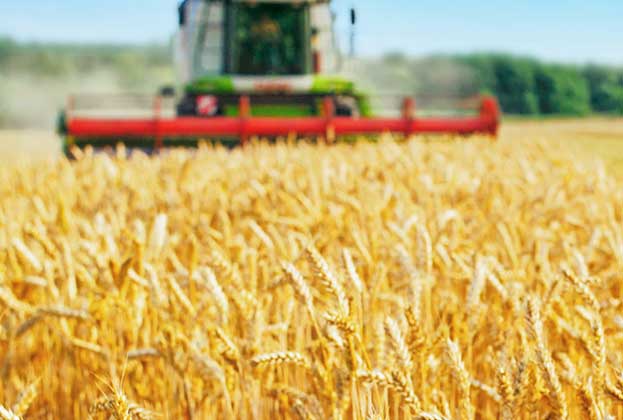Targets on net zero emissions and enhancing the natural environment are the leading influences of agricultural policy, but what about food production?
The decision to leave the EU has triggered an agricultural policy revolution. This policy shift switches the raison d’être of public support from area or production-based income support payments to payments for environmentally focused public goods – at least in England. However, it is arguable that centralised government land management policy is no longer the driving force within any of the devolved nations. Each country’s targets on net zero emissions and reversing biodiversity decline are now the leading influences, with other elements such as food, rural productivity and social cohesion competing for policy attention.
National agri-environmental policies will seek to provide a range of benefits that will contribute to the wellbeing of society as a whole by responding to the climate emergency, reversing biodiversity decline, ensuring high animal health and welfare standards and protecting our natural resources. Linking these national policies with private demand for nature-based solutions could unlock transformational investment in land management outcomes.
ENGLAND
English policy has developed the fastest. The government has already legislated for a transition period away from the Basic Payment Scheme (BPS), from 2021–2027, whereas in Scotland and Wales recent legislation allows a simplified version of their respective BPS to be delivered nationally while future policy plans are finalised.
In England, Environmental Land Management (ELM) will become the focus of future agri-environment policy and all elements will be launched by the end of 2024
Andrew Teanby, Associate Director, Rural Research
In England, the phase-out of the BPS will begin in 2021 with a 5% cut for the majority of farmers. By 2024 this will have increased to 50% and reach 70% for the largest farmers. Over this period farmers will be encouraged to join the existing Countryside Stewardship Scheme and the new Sustainable Farming Incentive component of Environmental Land Management (ELM). This will launch in order to increase the uptake of environmental management activities and prepare farmers for environmental delivery becoming increasingly ambitious and mainstream. ELM will become the focus of future agri-environment policy and all elements will be launched by the end of 2024.
Assuming all other factors are equal, 38% of farms in England make a loss without direct payment support. To tackle this, additional transition-period schemes will focus on building productivity and long-term competitiveness. For example, schemes will support capital investment in new technology or encourage improved herd health.
WALES
A recent Welsh government White Paper proposes the introduction of a Sustainable Farming Scheme (SFS). In contrast to Defra’s approach for England, the Welsh government sees the SFS as a business improvement programme that integrates support for farmers in delivering public goods with economic resilience support and advice. Strong emphasis is placed on sustainable food production coexisting alongside environmental delivery, but it is clear that food production should be rewarded by the market only.
On entry into the SFS, a farm sustainability assessment will establish the farm’s carbon footprint and potential for change, leading to advice on how sustainable land management can be most successfully implemented on the farm. The evidence base required to demonstrate the sustainability of products from farms within the scheme will be built through monitoring and reporting. This approach suggests that the SFS will both seek to improve the sustainability of farm products and allow their sustainability credentials to become a strength in the identity and marketing of Welsh produce. Plans for ELM give the impression that English interventions will be focused on the sustainability of farm practices rather than monitoring or driving performance at a product level.
To take the proposals forward, an Agriculture (Wales) Bill is expected to be introduced into the Welsh Parliament before summer 2022. A launch date for SFS has not been proposed, the Welsh government’s view is that the environmental challenge requires decisive action so any transition is likely to be short.
SCOTLAND
The strategy adopted in Scotland sees a period of simplicity for agricultural support between 2021 and 2024. Over this time the legacy BPS will be streamlined, while potential new schemes for longer-term policy are piloted. Development of farming and rural support policy beyond 2024 is the responsibility of the Farming and Food Production Future Policy Group, which is currently establishing a series of sector-specific farmer-led expert groups to advise it on policy development.
The Suckler Beef Climate Group has already recommended that a future scheme must be flexible and able to deliver environmental outcomes through specific activities that provide value for money to the farmer and a return on taxpayer investment, benefit the local economy and incentivise upskilling. Unsurprisingly, as an industry-led group, there is stronger focus on productivity and business improvement than natural capital or environmental outcomes that are not linked to food production. The group’s vision would lead to actions to improve and verify the sustainability of Scottish beef, leaving England as the apparent outlier in terms of produce sustainability forming part of the government’s strategy.
Despite the post-2024 support structure being less defined than England’s, pilot projects are underway to support capital investment in equipment, which would improve the sustainability of agriculture and to incentivise farmers to invest in their natural capital.

CONCLUSION
The magnitude of the climate emergency means that despite devolution, rural policy goals are broadly aligned – sustainable land management is the future, although there are nuances between the nations in terms of their paths and specific priorities. Emerging policy in Scotland and Wales more clearly integrates sustainable food production into their vision of agriculture’s future, although a national food strategy white paper is due to be published in England.
Ultimately, significant evolution is needed in the way land is farmed and in some cases a change in the use of that land
Andrew Teanby, Associate Director, Rural Research
Ultimately, significant evolution is needed in the way land is farmed and in some cases a change in the use of that land. Government policy, corporate obligations and corporate social responsibility policies mean real value is beginning to be attached to the additional services that agriculture and land management can provide. Demand is building: for agriculture, the priority now is to identify and validate these services so that they can be marketed successfully and become an additional income stream into the agricultural sector.
Read the articles within Spotlight: The Farmland Market below.
.jpg)
